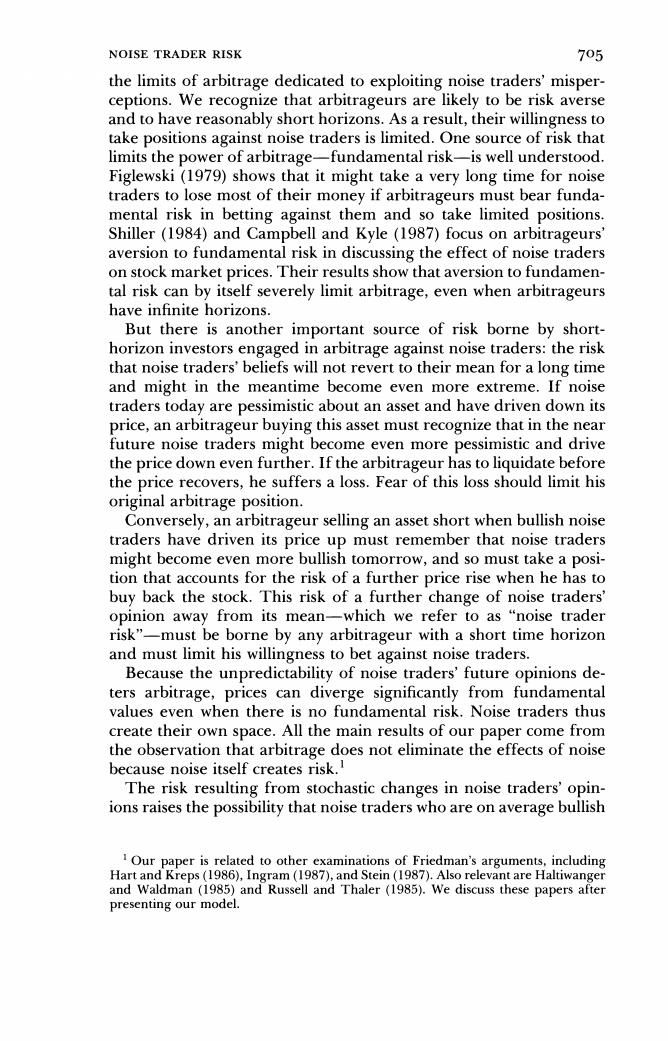正在加载图片...

NOISE TRADER RISK 705 the limits of arbitrage dedicated to exploiting noise traders'misper- ceptions.We recognize that arbitrageurs are likely to be risk averse and to have reasonably short horizons.As a result,their willingness to take positions against noise traders is limited.One source of risk that limits the power of arbitrage-fundamental risk-is well understood. Figlewski(1979)shows that it might take a very long time for noise traders to lose most of their money if arbitrageurs must bear funda- mental risk in betting against them and so take limited positions. Shiller(1984)and Campbell and Kyle (1987)focus on arbitrageurs aversion to fundamental risk in discussing the effect of noise traders on stock market prices.Their results show that aversion to fundamen- tal risk can by itself severely limit arbitrage,even when arbitrageurs have infinite horizons. But there is another important source of risk borne by short- horizon investors engaged in arbitrage against noise traders:the risk that noise traders'beliefs will not revert to their mean for a long time and might in the meantime become even more extreme.If noise traders today are pessimistic about an asset and have driven down its price,an arbitrageur buying this asset must recognize that in the near future noise traders might become even more pessimistic and drive the price down even further.If the arbitrageur has to liquidate before the price recovers,he suffers a loss.Fear of this loss should limit his original arbitrage position. Conversely,an arbitrageur selling an asset short when bullish noise traders have driven its price up must remember that noise traders might become even more bullish tomorrow,and so must take a posi- tion that accounts for the risk of a further price rise when he has to buy back the stock.This risk of a further change of noise traders' opinion away from its mean-which we refer to as "noise trader risk"-must be borne by any arbitrageur with a short time horizon and must limit his willingness to bet against noise traders. Because the unpredictability of noise traders'future opinions de- ters arbitrage,prices can diverge significantly from fundamental values even when there is no fundamental risk.Noise traders thus create their own space.All the main results of our paper come from the observation that arbitrage does not eliminate the effects of noise because noise itself creates risk. The risk resulting from stochastic changes in noise traders'opin- ions raises the possibility that noise traders who are on average bullish Our paper is related to other examinations of Friedman's arguments,including Hart and Kreps(1986),Ingram(1987),and Stein(1987).Also relevant are Haltiwanger and Waldman (1985)and Russell and Thaler (1985).We discuss these papers after presenting our model